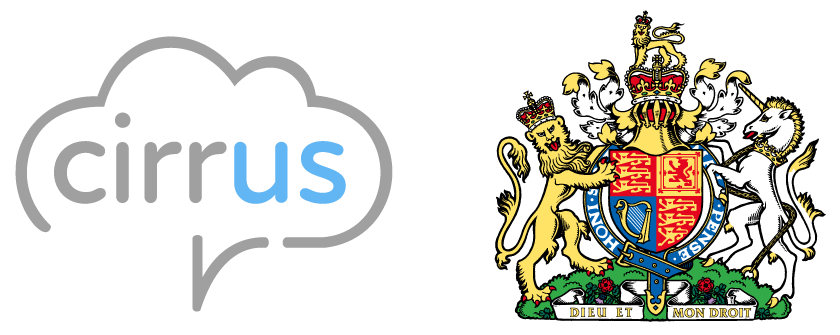This article was first published on EngageCustomer on 15 February 2024.
Wouldn’t it be nice to walk into your favourite coffee shop, and the barista knows your name and remembers that you like a double-shot espresso with just a hint of vanilla? It’s not just about the coffee; it’s the feeling that they know you and what you like. That’s what businesses aim for when discussing creating great customer experiences.
Today, a bad review or an unhappy tweet about poor service could send over half of your customers to a rival. That’s why innovative companies are making sure they serve up customer care as well as that perfectly crafted coffee. They’re blending the best of technology with the warmth of human connection to give you service that doesn’t just solve your problems but makes you feel valued.
A simple thumb scroll can make or break loyalty, which is why companies that put their customers first can see their profits soar by 60% compared to those that don’t. They’re using intelligent systems that remember your preferences, just like the barista remembers your drink order, and to make every interaction with them smooth and personal.
The kind of service we’re talking about here goes beyond just answering your questions—it’s about creating a journey that feels easy, where companies know what you need before you even have to ask. It’s like walking into that coffee shop and finding your drink waiting for you, just how you like it, without needing to order. This is the new standard for customer service, where tech and people work together to meet your needs and exceed them, making every interaction an experience that might just make your day. This is ‘Intelligent CX’, where advanced technologies, data analytics, and personalised strategies enhance the interactions and experiences businesses provide to their customers across various touchpoints.
Jason Roos, CEO of contact centre solutions provider Cirrus, says, “Intelligent CX is about combining the clever things tech can do with what people are great at—making a connection. This way, every chat or call feels like talking to someone who gets you. Technology should not replace the human element but enhance it, ensuring every customer interaction is not only efficient but also genuinely connective.”
Simplifying tech for smarter customer service
Technology is revolutionising customer service by utilising data analysis and historical interactions to predict customer needs, thereby enhancing the efficiency and personalisation of support provided by organisations.
Artificial Intelligence (AI) and Machine Learning (ML)
Through record analysis or historical interactions, tools like AI and ML can predict why you might be contacting an organisation and then provide agents with helpful information to help them service you better and quicker. For example, you have an Android phone, and your contract is ending. When you contact your provider, the agent already knows about your devices and has personalised suggestions ready, speeding up the call and making the process more efficient. In fact, 60% of CX Leaders expect AI to have a ‘Transformative’ or ‘Significant’ impact.
Internet of things (IoT)
Wouldn’t it be great if your device knew exactly what you need before you do? In 2024, the Internet of Things (IoT) makes this a reality. For example, a smart refrigerator equipped with IoT technology could monitor your food inventory and consumption patterns. It could then automatically reorder your favourite milk when it detects you’re running low, ensuring you never run out. This level of automation and personalisation streamlines your shopping experience, saving you both time and effort.
Virtual Reality (VR) / Augmented Reality (AR)
Companies understand their customers might like to try the product before making a purchase. But it gets nearly impossible during online shopping. Thanks to AR and VR technologies, you can now bring physical things to virtual reality for easy imagination. You can try on clothes or check out a new fridge inside out with AR/VR before purchasing. For example, IKEA’s AR app allows customers to visualise furniture in their homes before making a purchase. It significantly enhances their decision-making confidence and satisfaction.
Blockchain
Blockchain offers transparency of data shared across a business network to all parties involved. That said, when you buy something from a blockchain-powered supply chain network, you can trust where it’s coming from and that it’s the real thing. For instance, a luxury fashion brand might implement blockchain to create a secure and unalterable record of each item’s journey from production to sale. As a customer, you can scan a QR code on the product to access its history, verify its authenticity, learn about the materials used, and even understand the ethical sourcing of those materials. As noted by Deloitte, 73% of consumers would be more likely to purchase from a brand that could prove its products’ authenticity and ethical sourcing through blockchain.
Big data analytics
Imagine shopping online, and every suggestion is handpicked. This is Big Data Analytics at work, enhancing your shopping experience. By analysing your past behaviours, preferences, and purchases, retailers can personalise your browsing experience, from tailor-made product recommendations to promotions that interest you. This personal touch makes shopping more enjoyable and saves time by highlighting items that match your tastes and needs. According to Dresner Advisory Services, 53% of companies are adopting big data analytics to improve decision-making.
Conclusion
The integration of cutting-edge technology and human expertise is redefining customer experience (CX), moving from transactional interactions to deeply personalised, anticipatory engagements that resonate with customers on a deeper level. Advancements in AI, IoT, VR/AR, blockchain, and big data analytics, emphasise the critical balance between leveraging innovative technologies and nurturing talent to harness these tools effectively. The challenge lies in adopting these technological advances and cultivating an environment where continuous learning, ethical practices, and developing soft skills are central to business. This approach ensures that technology is a conduit to meaningful human connections rather than an impediment.




